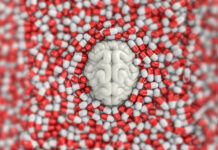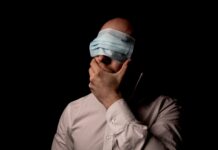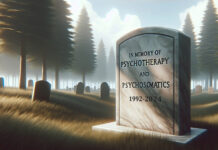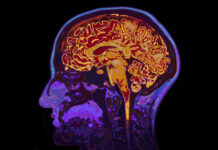Depression: Psychiatry’s Discredited Theories and Drugs Versus a Sane Model and Approach
Psychiatry’s depression outcomes are poor because its bio-chemical-electrical treatments are based on a depression model that science has flushed down the toilet.
The False Memory Syndrome at 30: How Flawed Science Turned into Conventional Wisdom ...
Soon after states finally began providing adults who remembered childhood abuse with the legal standing to sue, the FMSF began waging a PR campaign to discredit their memories—in both courtrooms and in the public mind.
The Fight Against Involuntary Commitment: Are Protection & Advocacy Organizations Fulfilling Their Mission?
Protection and Advocacy organizations were designed as ground-breaking tools for fighting involuntary commitment and protecting patients’ rights. Are they fulfilling their promise? And will they survive Trump?
“A Dangerous Substance”: The Impact of Social Media on Youth Mental Health
This is what social media does, she says. It draws people in. It hurts people. In the worst cases, it kills people.
Summing up the STAR*D Scandal: The Public was Betrayed, Millions were Harmed, and the...
American psychiatry, the NIMH, the larger medical community, and mainstream media have betrayed the American public by failing to make this scandal known.
Therapy by App: A Clinical Psychologist Tries BetterHelp
Revealing concerns about BetterHelp’s ability to provide quality, secure treatment—and the unresolved tensions in the science of psychotherapy that services like BetterHelp exploit.
Dramatic Rise in Police Interventions on 988 Callers
New data reveals that four times as many callers to 988 as previously publicly claimed are getting visited by police or emergency medical services.
Exploding Myths About Schizophrenia: An Interview with Courtenay Harding
The Vermont Longitudinal Study, led by Courtenay Harding, belied conventional beliefs about schizophrenia by showing remarkably good outcomes for patients discharged in the 1950s and '60s.
“War Cry For Change”: Veterans Launch Campaign for Informed Consent and Safe Deprescribing at...
Derek Blumke and Timothy Jensen: The Grunt Style Foundation leads a new phase in the movement to combat psychiatric drug harm.
The Editorial Demise of Psychotherapy and Psychosomatics Is Bad News For Us All
Karger’s decision to replace the editorial leadership without consultation is extraordinary, abruptly ending decades of success and accumulated expertise.
The Door to a Revolution in Psychiatry Cracks Open
The Ministry of Health in Norway has ordered its four regional health authorities to offer medicine-free treatment in psychiatric hospitals. A six-bed ward in Tromso, which is in the far north of Norway, is now providing such care.
Medication-Free Treatment in Norway: A Private Hospital Takes Center Stage
At the Hurdalsjøen Recovery Center in Norway, patients with a long history of psychiatric hospitalizations are tapering from their medications and, in a therapeutic environment that emphasizes a good diet, exercise, and asking patients "what do they want in life," are leaving their old lives as chronic patients behind.
Suicide in the Age of Prozac
During the past twenty years, the American Foundation for Suicide Prevention and American psychiatry have adopted a "medicalized" approach to preventing suicide, claiming that antidepressants are protective against suicide. Yet, the suicide rate in the United States has increased 30% since 2000, a time of rising usage of antidepressants. A review of studies of the effects of mental health treatment and antidepressants on suicide reveals why this medicalized approach has not only failed, but pushed suicide rates higher.
Suicide Hotlines Bill Themselves as Confidential—Even as Some Trace Your Call
Every year suicide hotline centers covertly trace tens of thousands of confidential calls, and police come to homes, schools, and workplaces to forcibly take callers to psychiatric hospitals.
The Failure of “Spit For Science”: No Genetic or Neurological Pathways for Substance Abuse
Despite finding no meaningful correlation between genes and substance use, high-profile geneticists misleadingly conveyed optimistic results.
Muzzled by Psychiatry in a Time of Crisis
The American Psychiatric Association and its former president, Jeffrey Lieberman, have used the Goldwater Rule to try to silence Yale psychiatrist Bandy Lee and colleagues who warned, in a collection of essays, about why President Trump is "dangerous." Why would a guild choose to do this?
Criticisms That Establishment Psychiatry Can and Cannot Tolerate
Criticism that uniquely applies to establishment psychiatry but not to medicine in general threatens its existential legitimacy, and is not tolerated.
Adverse Childhood Experiences: When Will the Lessons of the ACE Study Inform Societal Care?
The ACE study tells of how adverse childhood experiences increase the risk of psychological and physical problems in adulthood. When will we start incorporating these findings into public health policy and medical care?
Anatomy of an Industry: Commerce, Payments to Psychiatrists and Betrayal of the Public Good
Pharmaceutical companies paid psychiatrists $340 million from 2014 through 2020, corrupting every aspect of the testing and marketing of new psychiatric drugs.
Faith Healing in India: An Ancient Way of Tending to Madness
In contrast to the colonial legacy of medical psychiatry in India, indigenous and faith healing methods emphasize the interconnectedness of the mind, body, and spirit, using rituals, storytelling, and communal support to create a holistic healing environment.
Lancet Psychiatry Needs to Retract the ADHD-Enigma Study
Lancet Psychiatry, a UK-based medical journal, recently published a study that concluded brain scans showed that individuals diagnosed with ADHD had smaller brains. That conclusion is belied by the study data. The journal needs to retract this study.
UPDATE: Lancet Psychiatry (online) has published letters critical of the study, and the authors' response, and a correction.
“Confidential” 988 Conversation Records Shared with Corporations
Recordings of 988 callers’ voice, text, and chat conversations are being shared with researchers, AI developers, and corporations without consent.
Psychiatry, Fraud, and the Case for a Class-Action Lawsuit
For decades, psychiatry committed medical fraud when it told the public that antidepressants fixed a chemical imbalance in the brain.
Andrew Rich: “I Didn’t Know Stuff Like This Existed”
In this second part of MIA’s report on compulsory outpatient treatment orders, Michael Simonson tells of how he came to report on this topic, the results from MIA’s survey of people who have experienced such forced treatment, his interviews with several of the survey respondents, and more on Andrew Rich’s life.
Screening + Drug Treatment = Increase in Veteran Suicides
For the past 15 years, the VA's suicide prevention efforts have focused on getting veterans screened and treated for psychiatric disorders, with antidepressants a first-line therapy. This effort has caused veteran suicide rates to steadily rise.

































